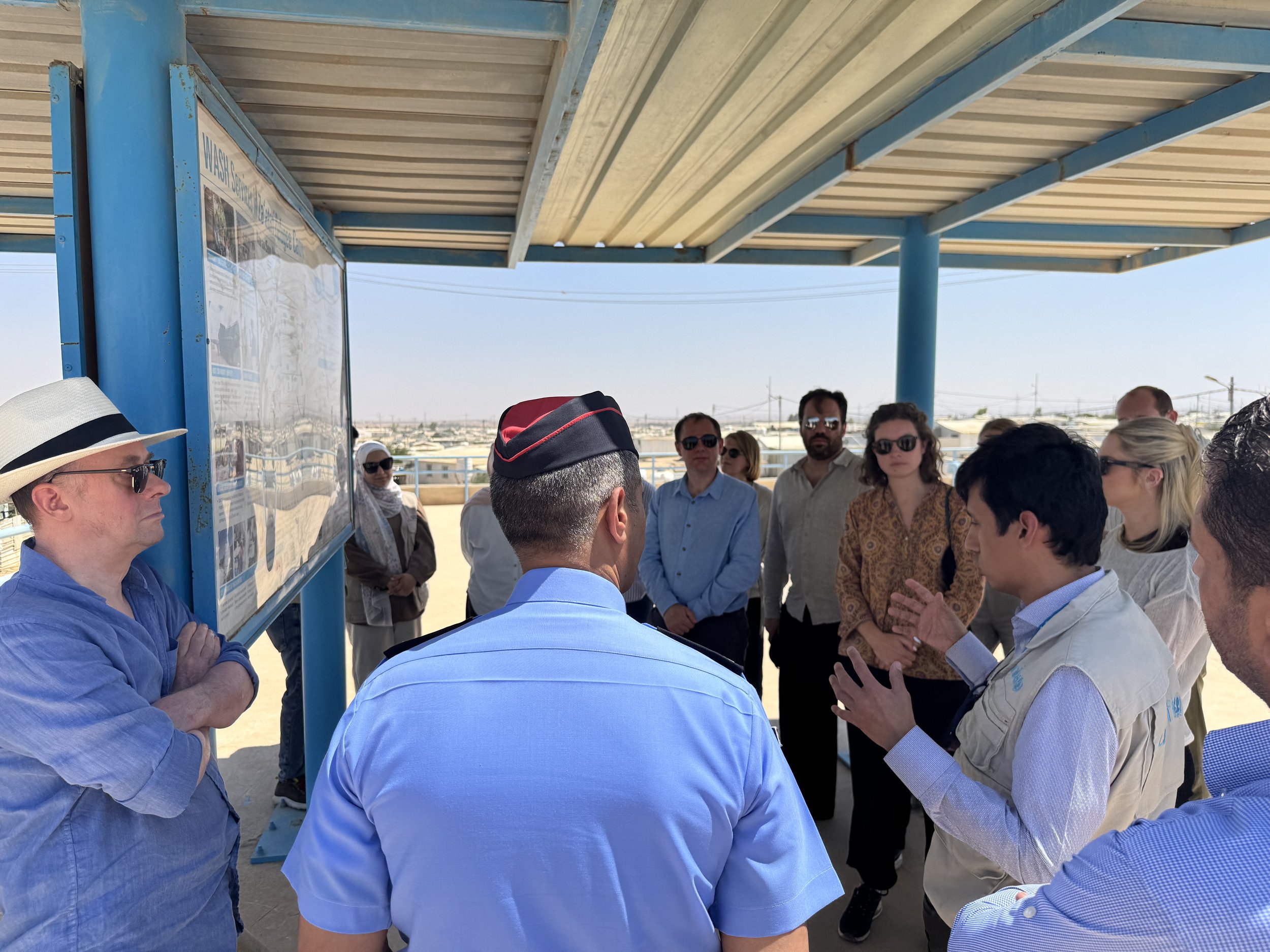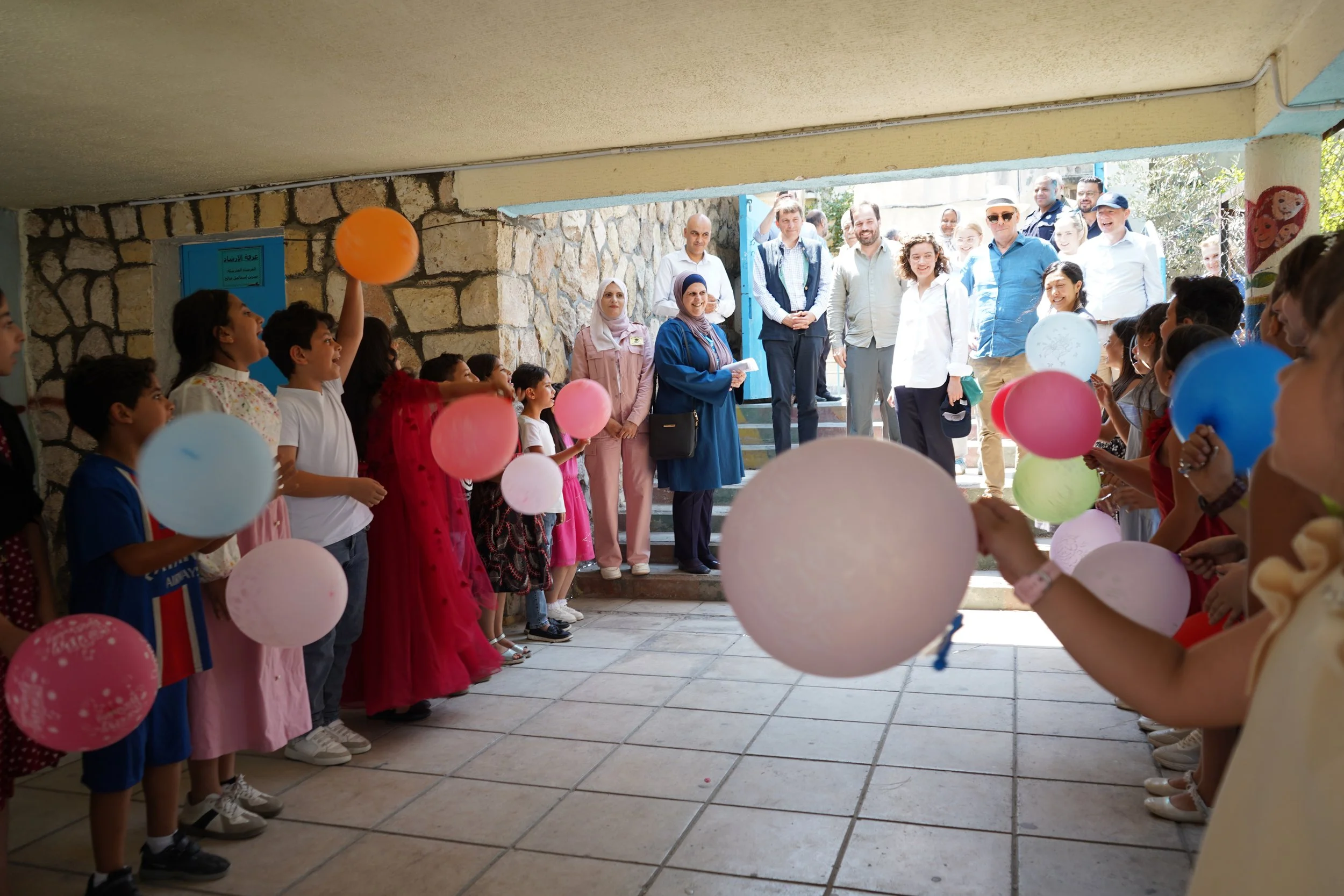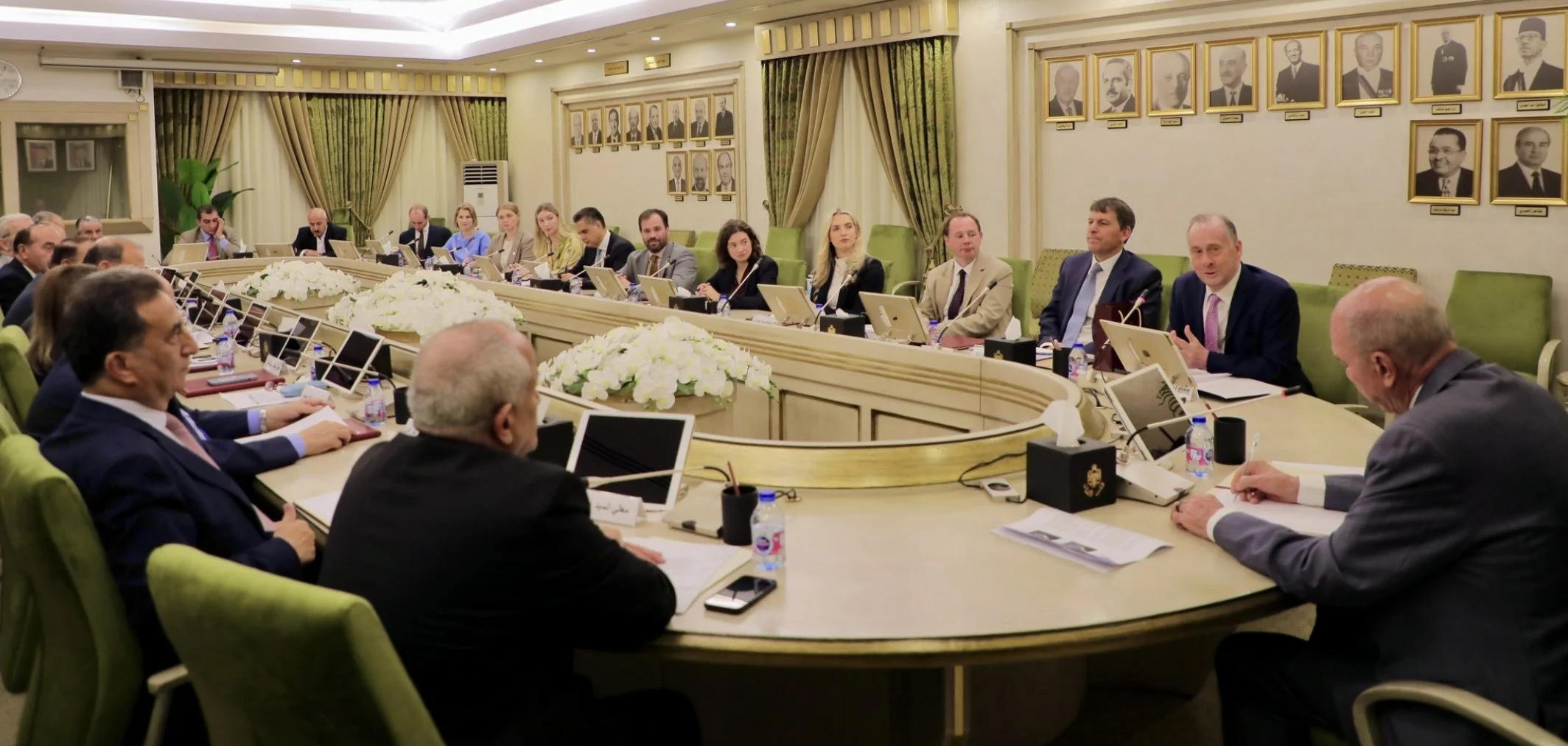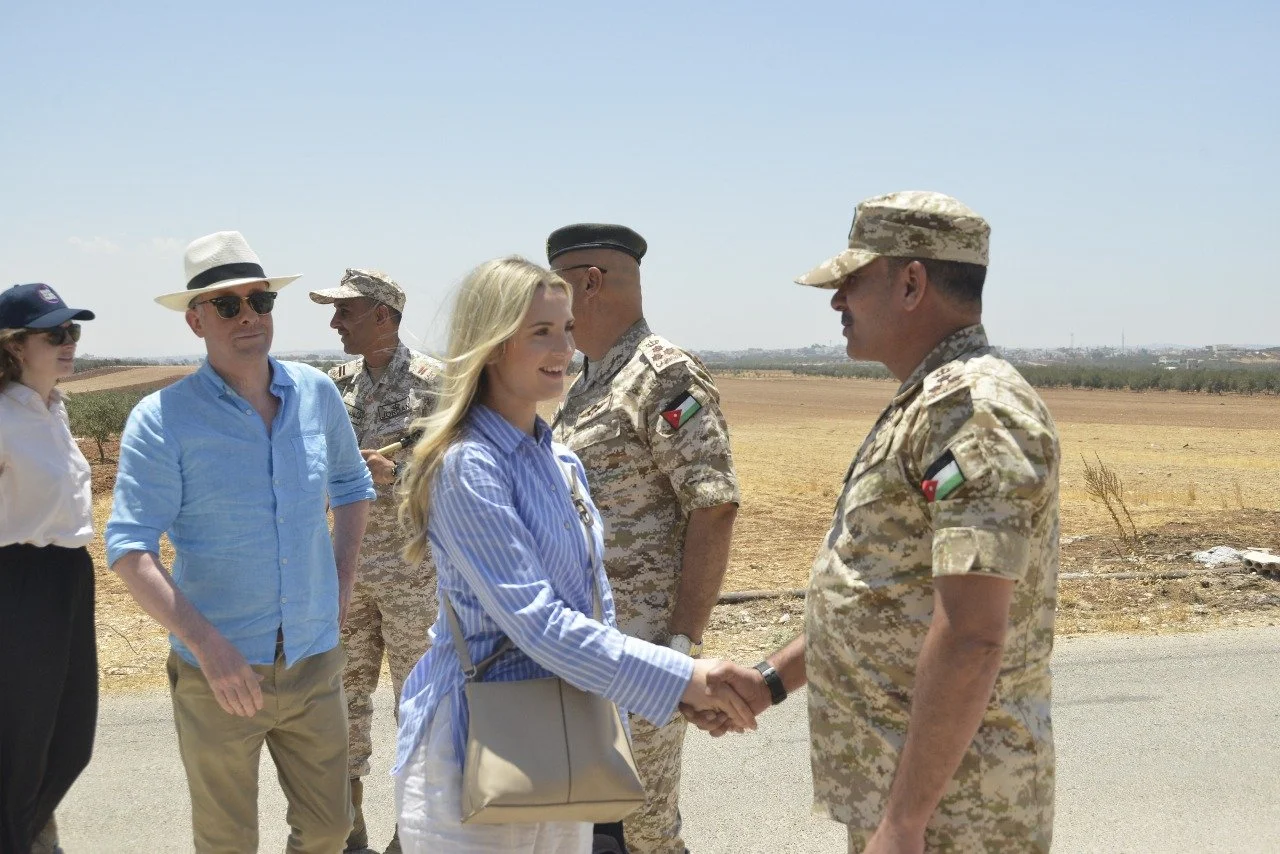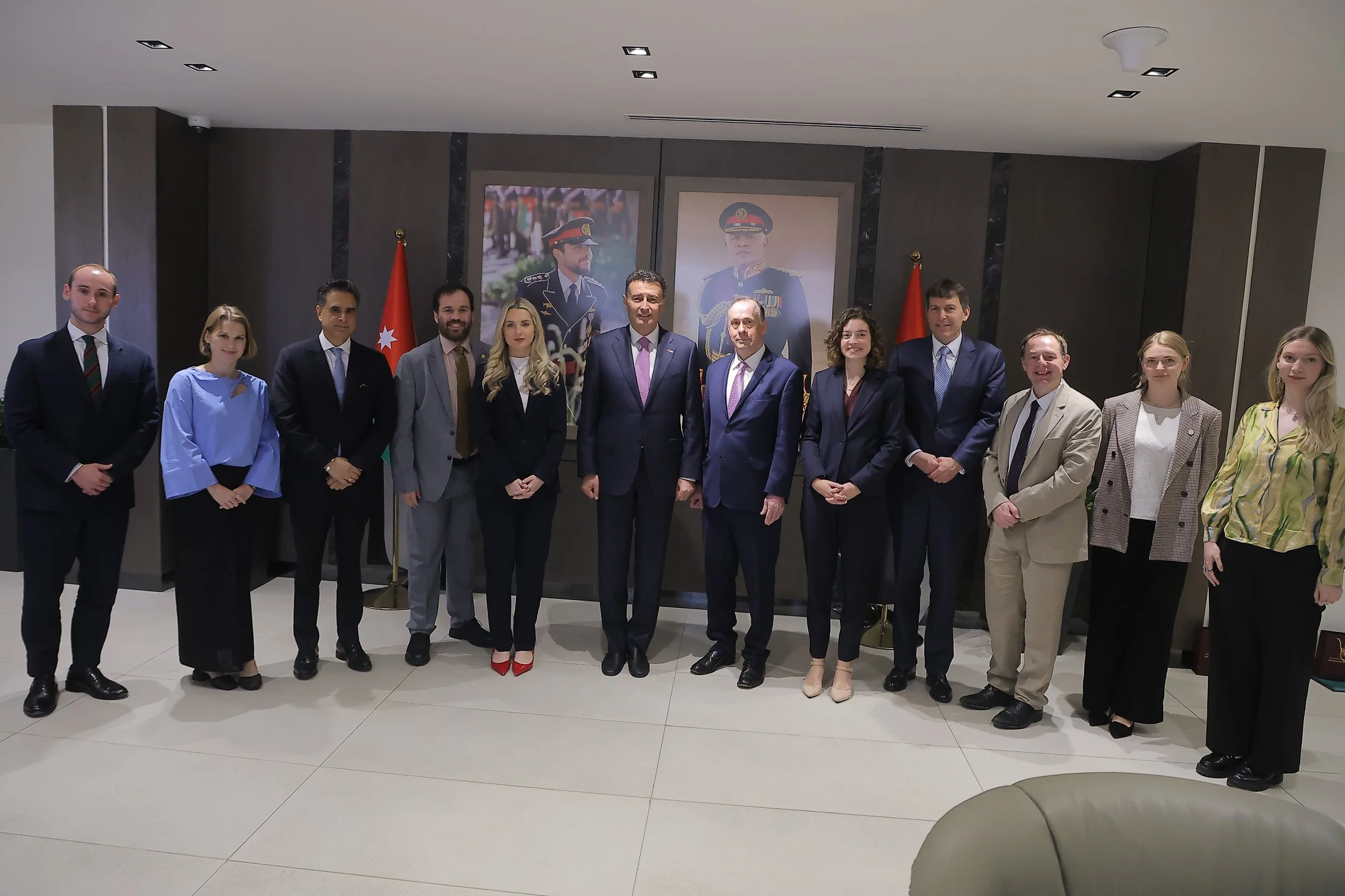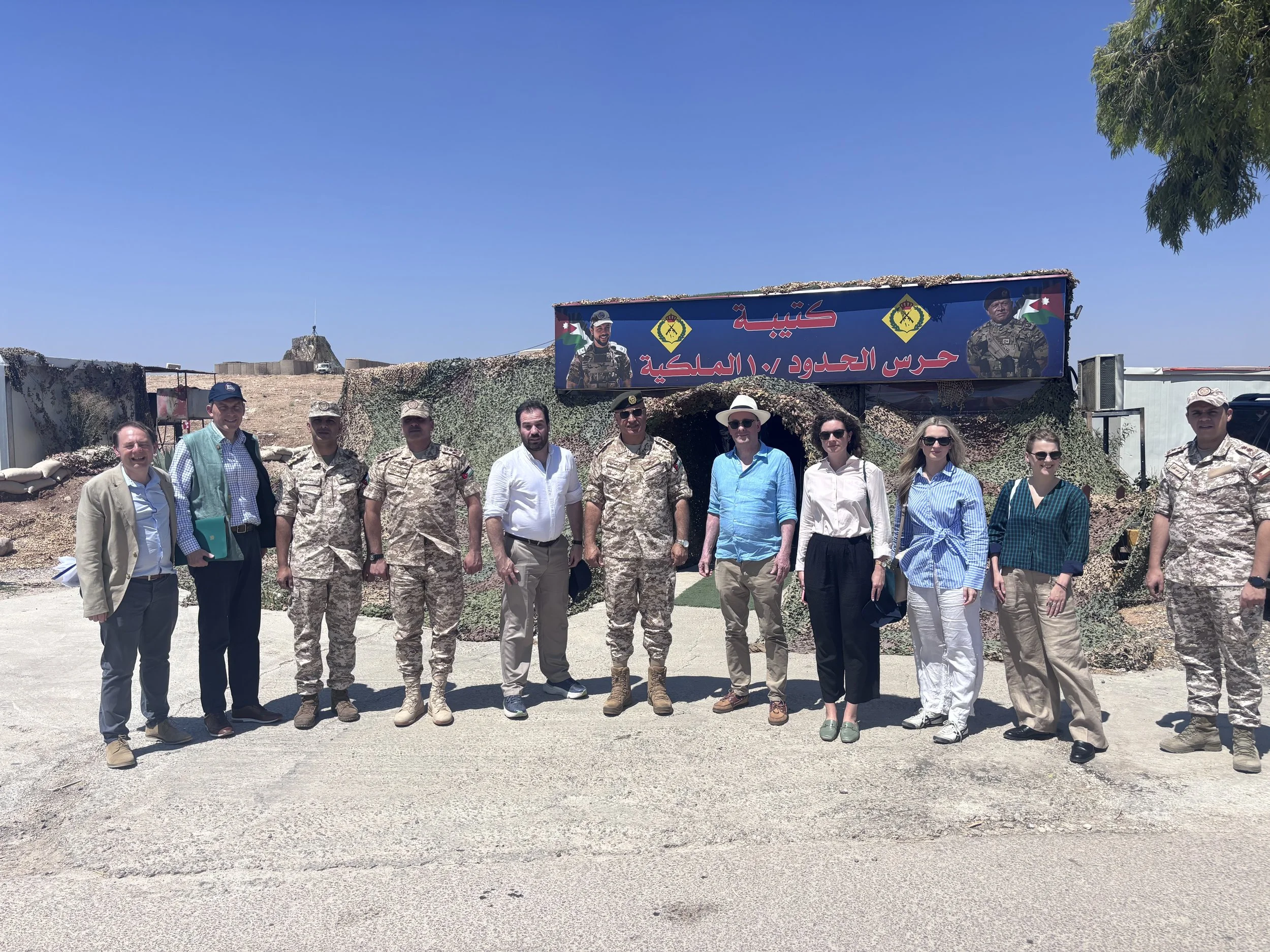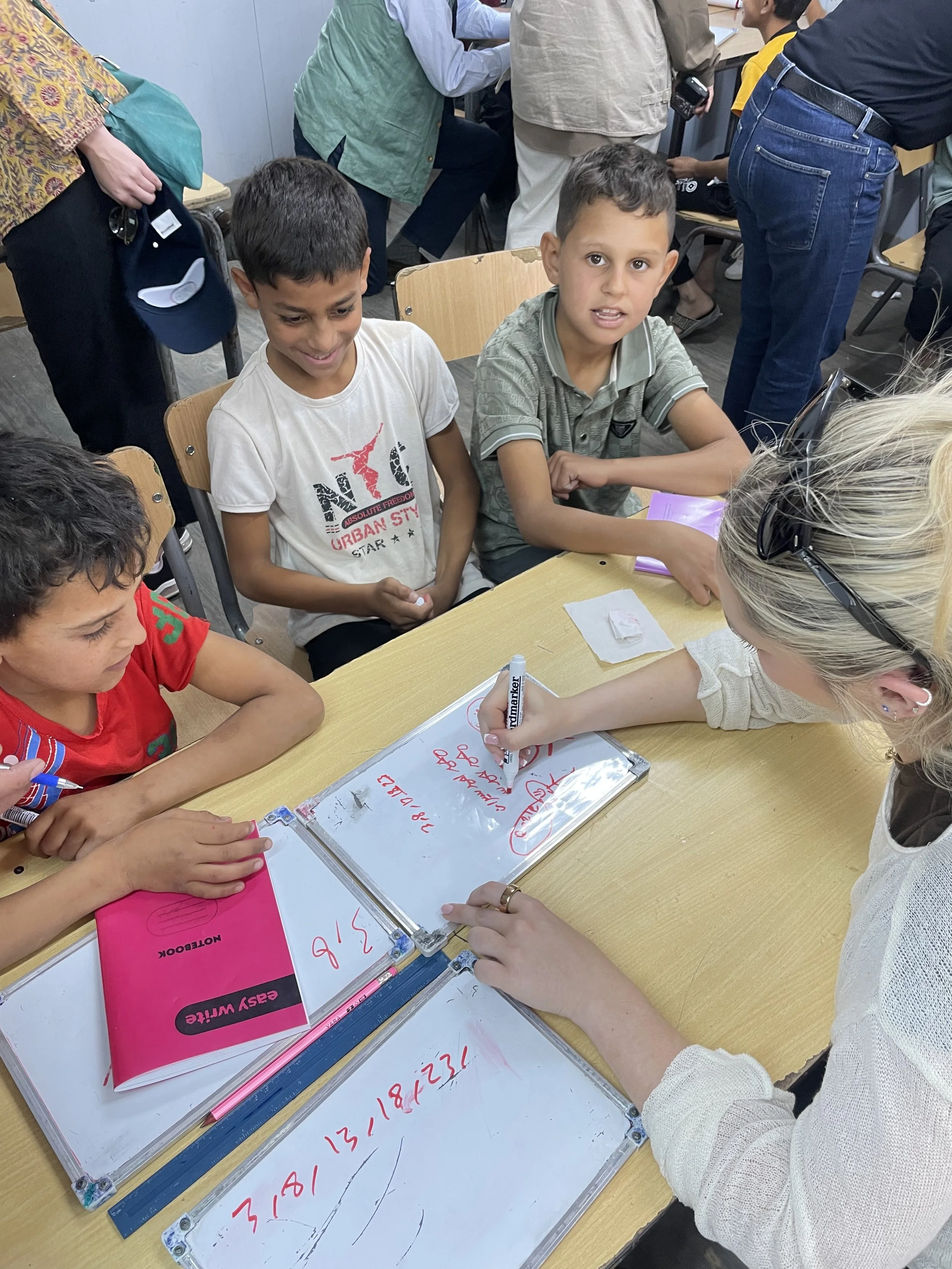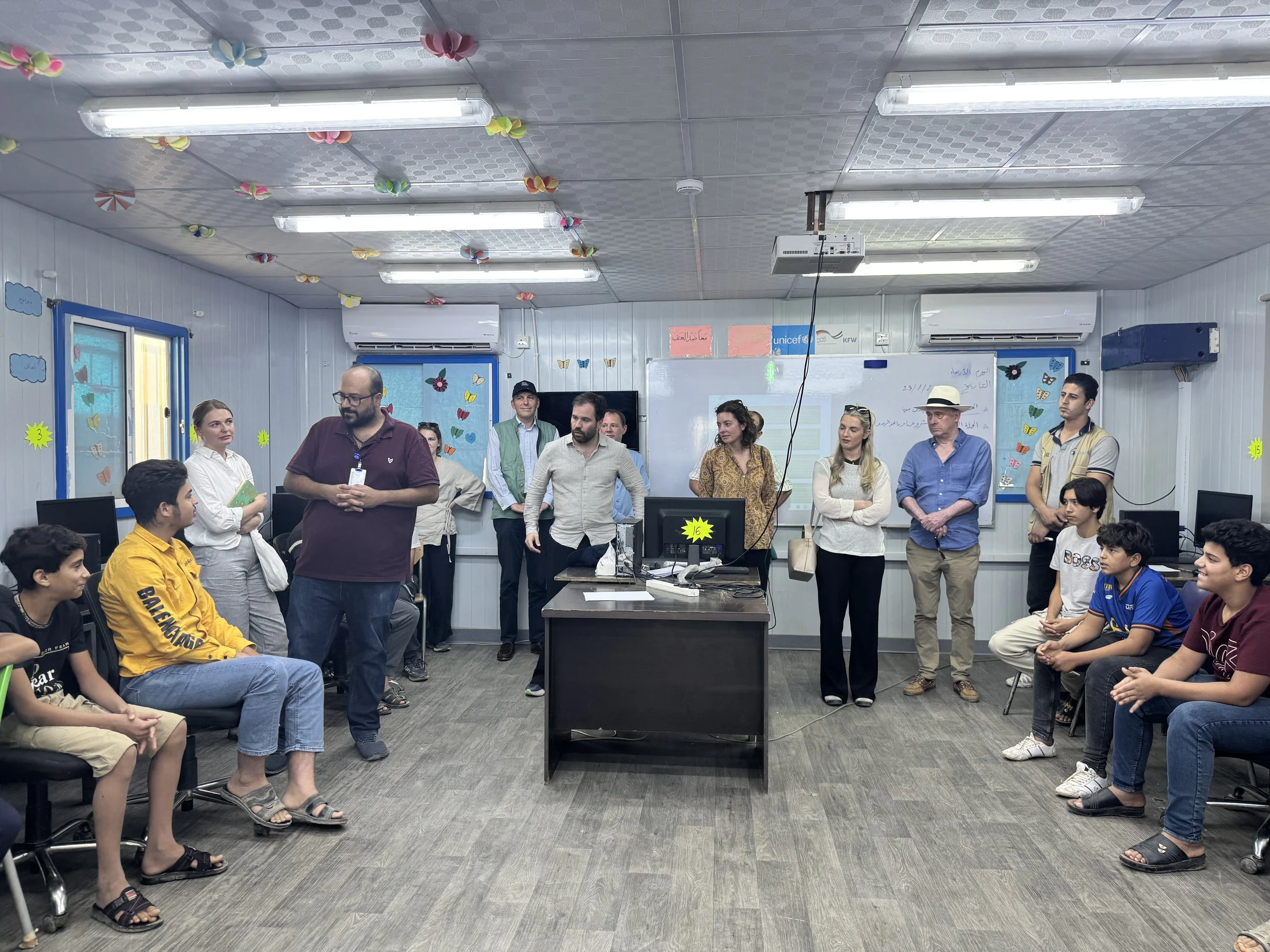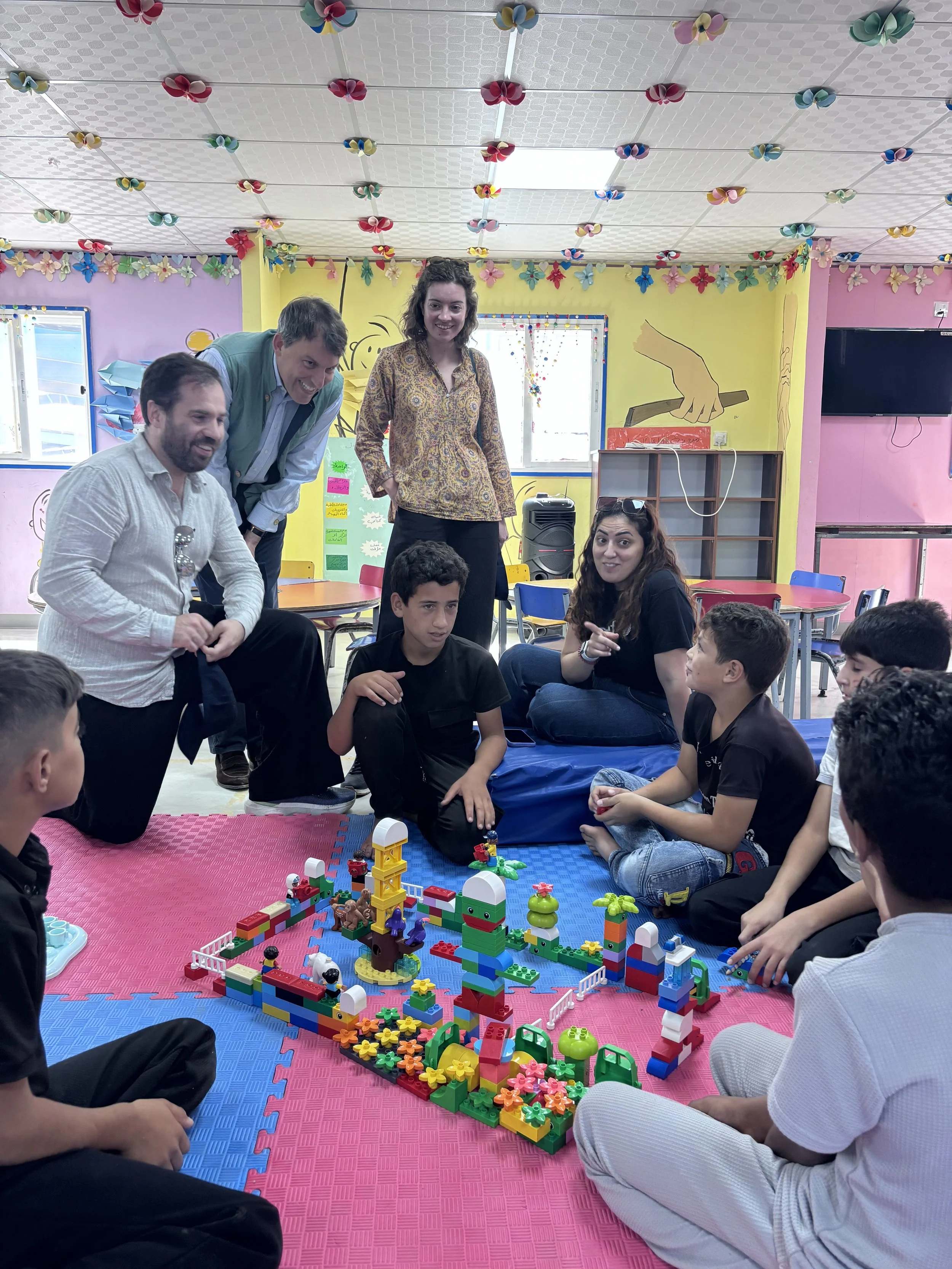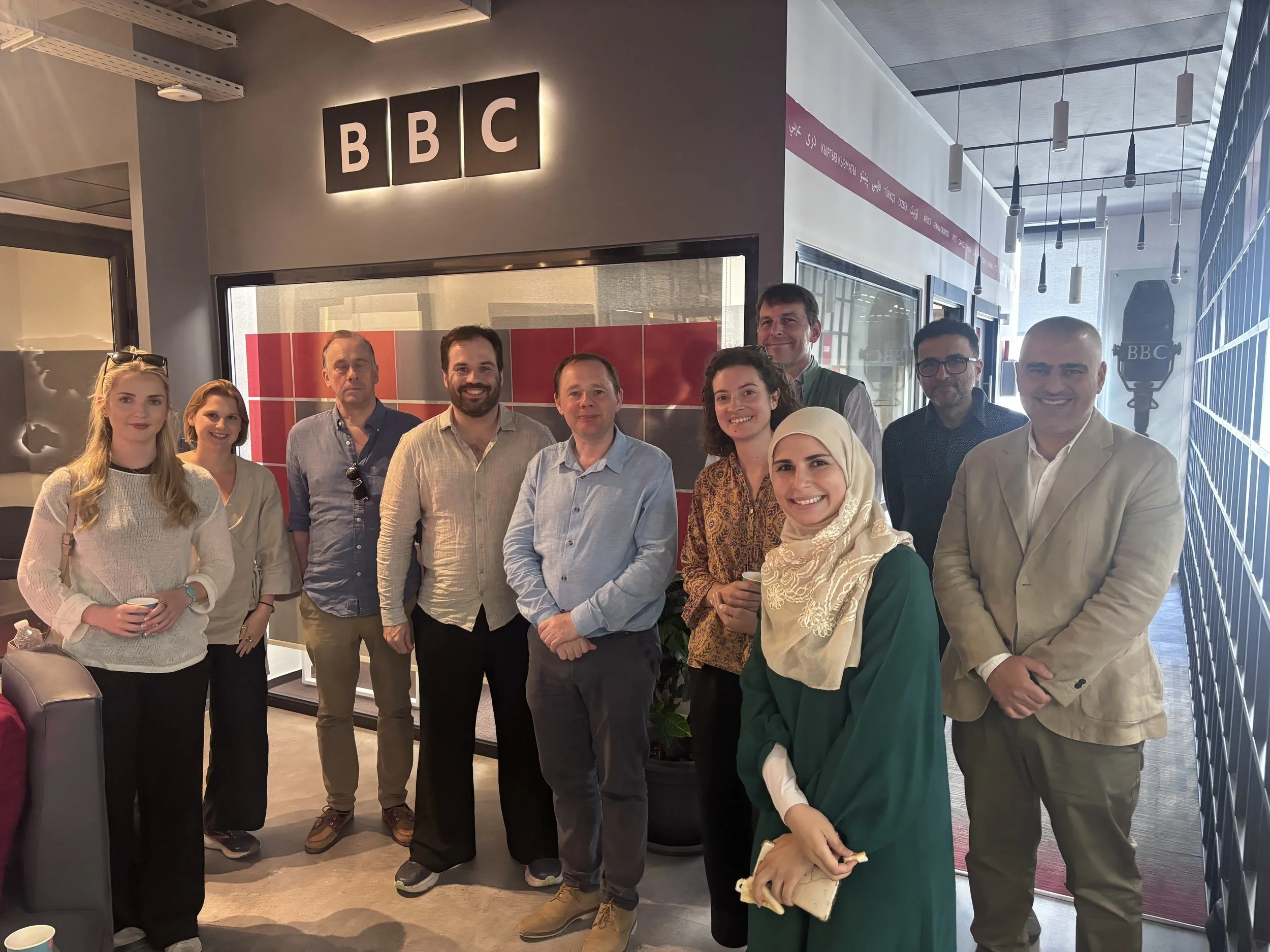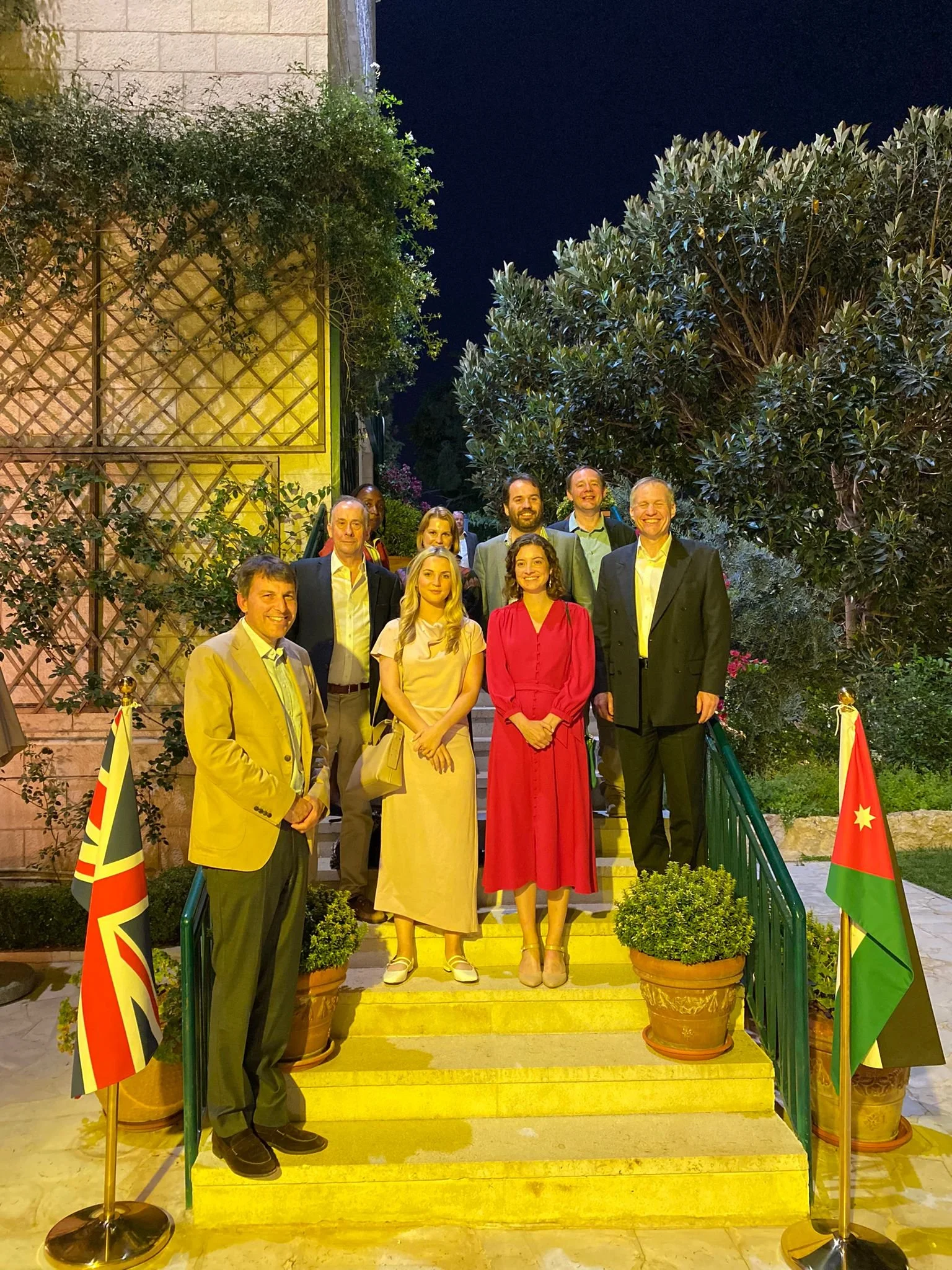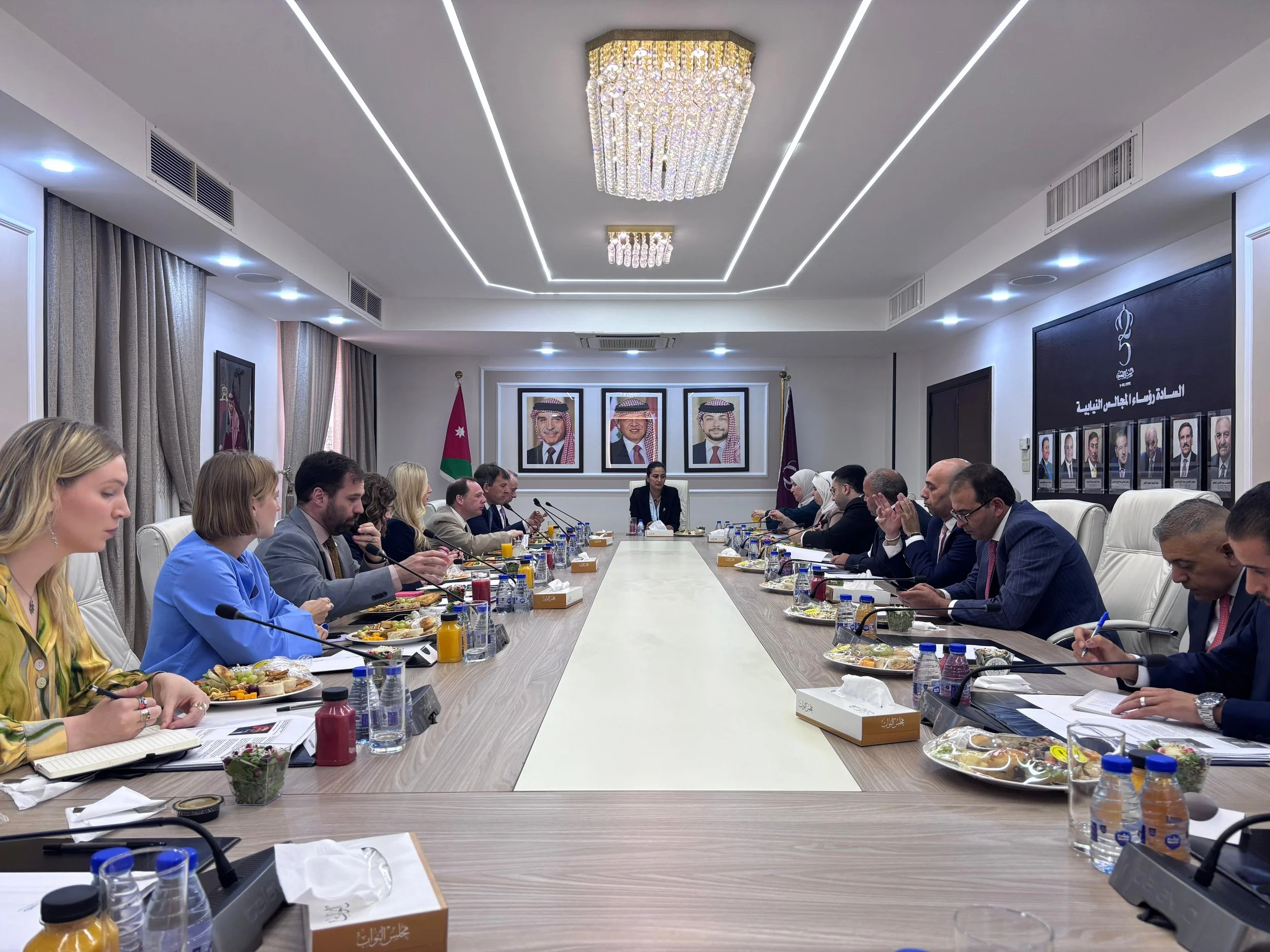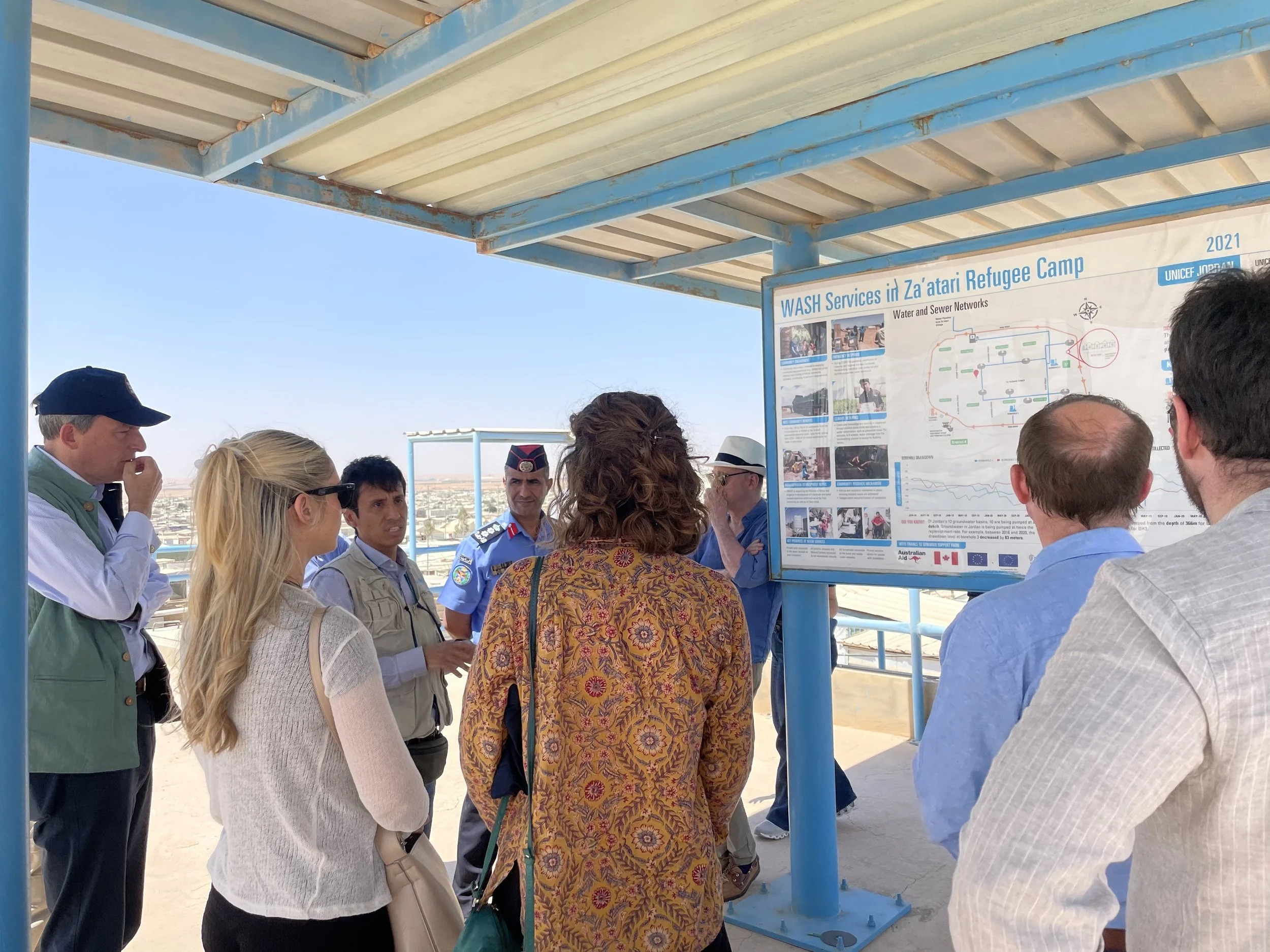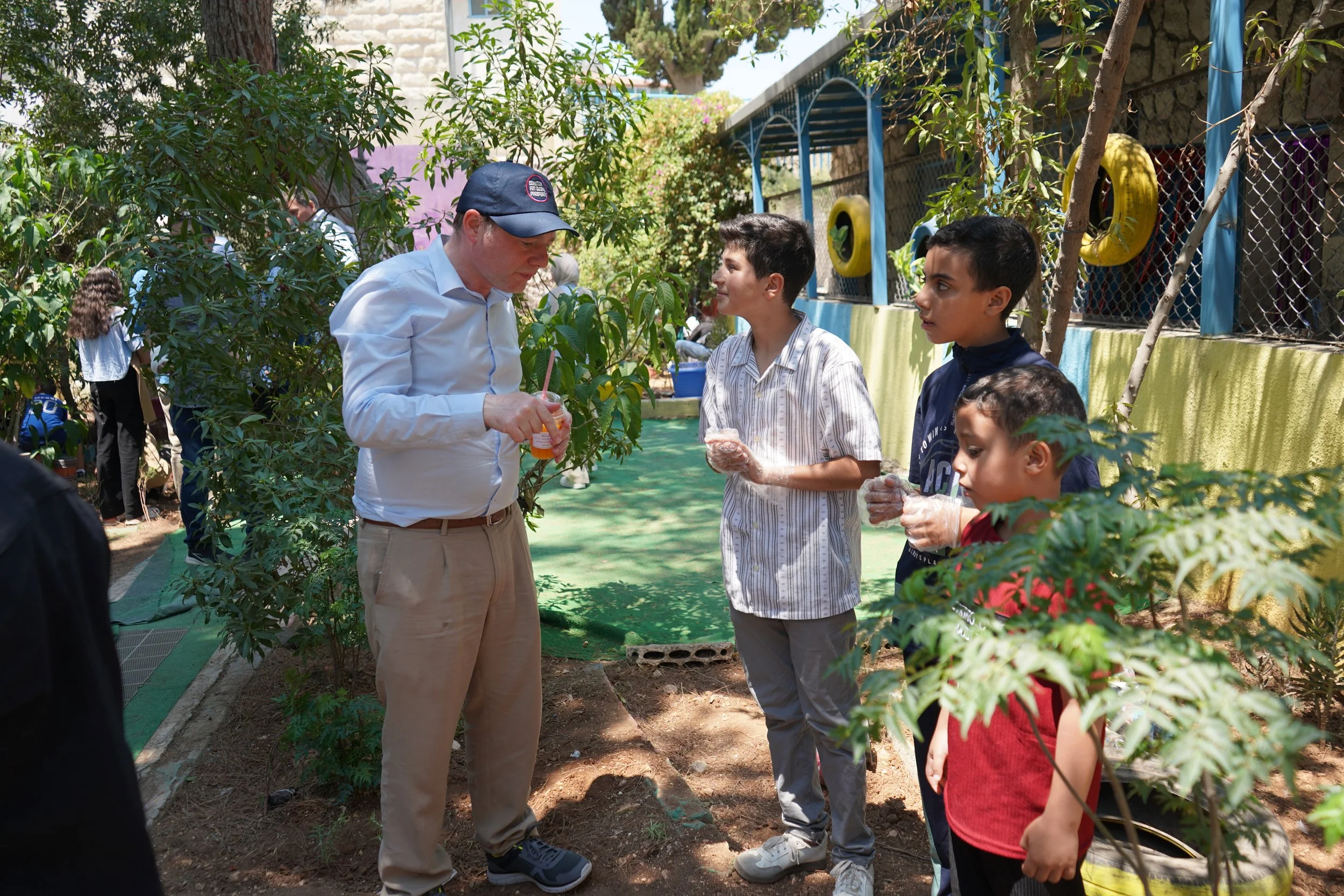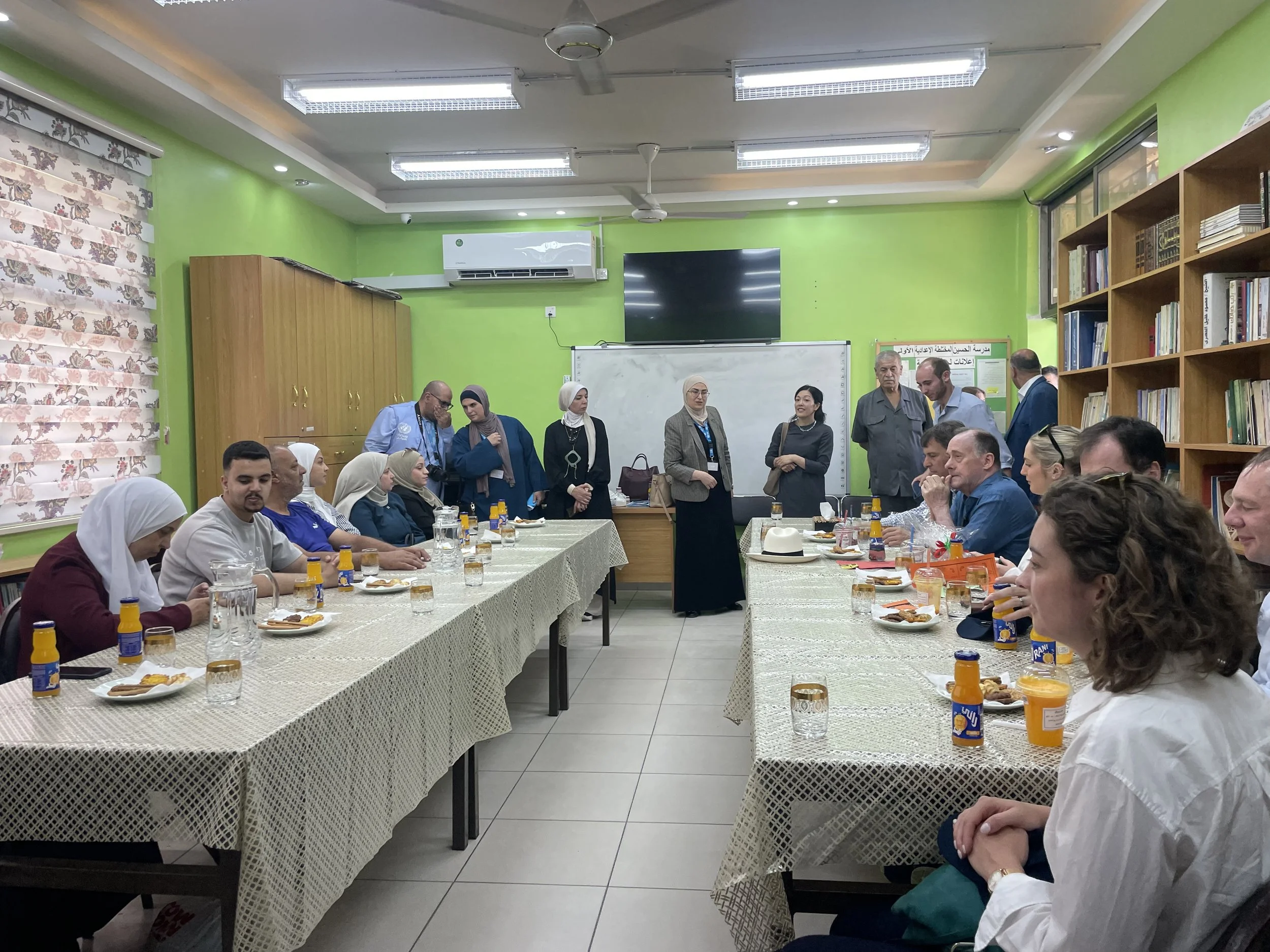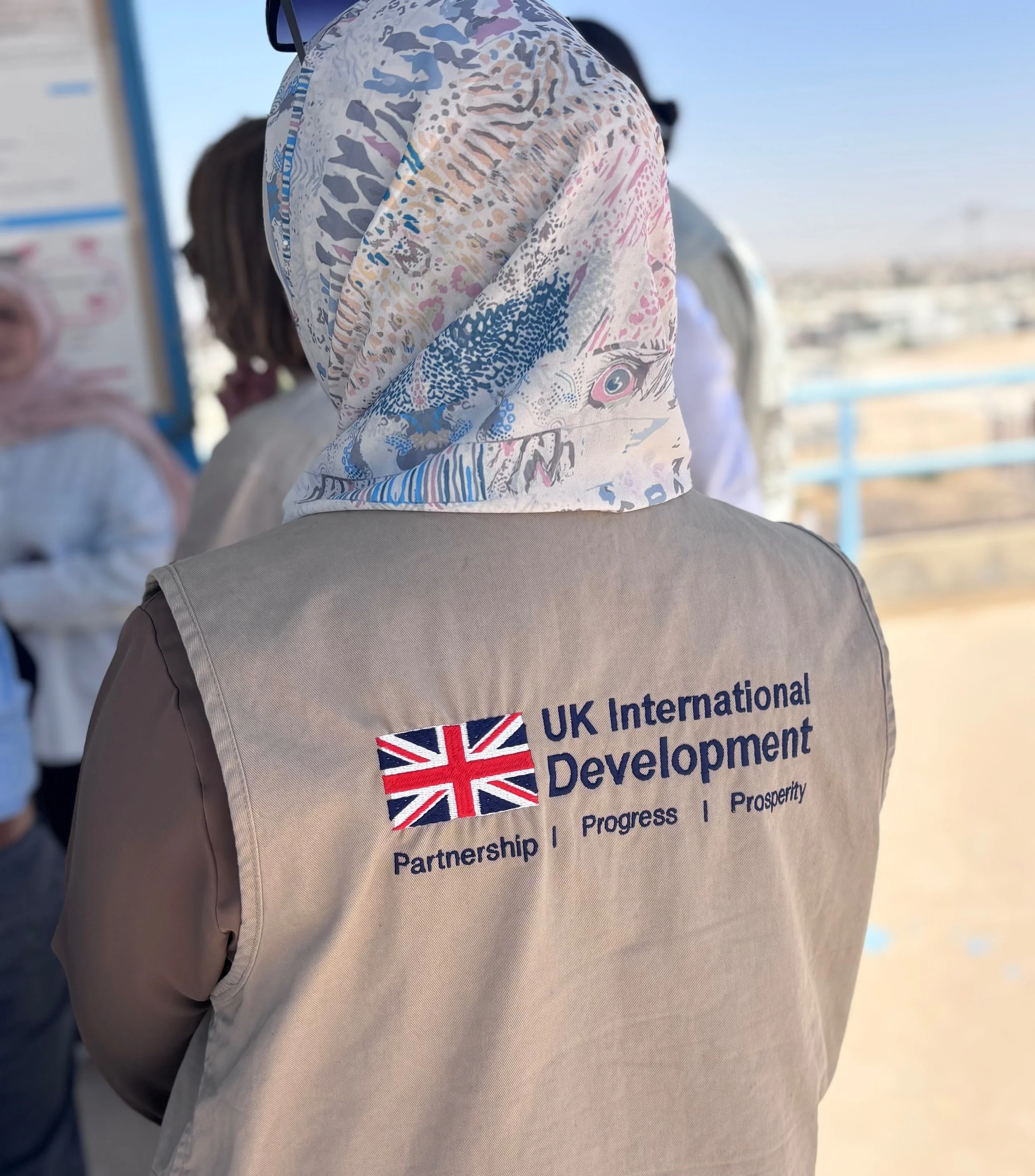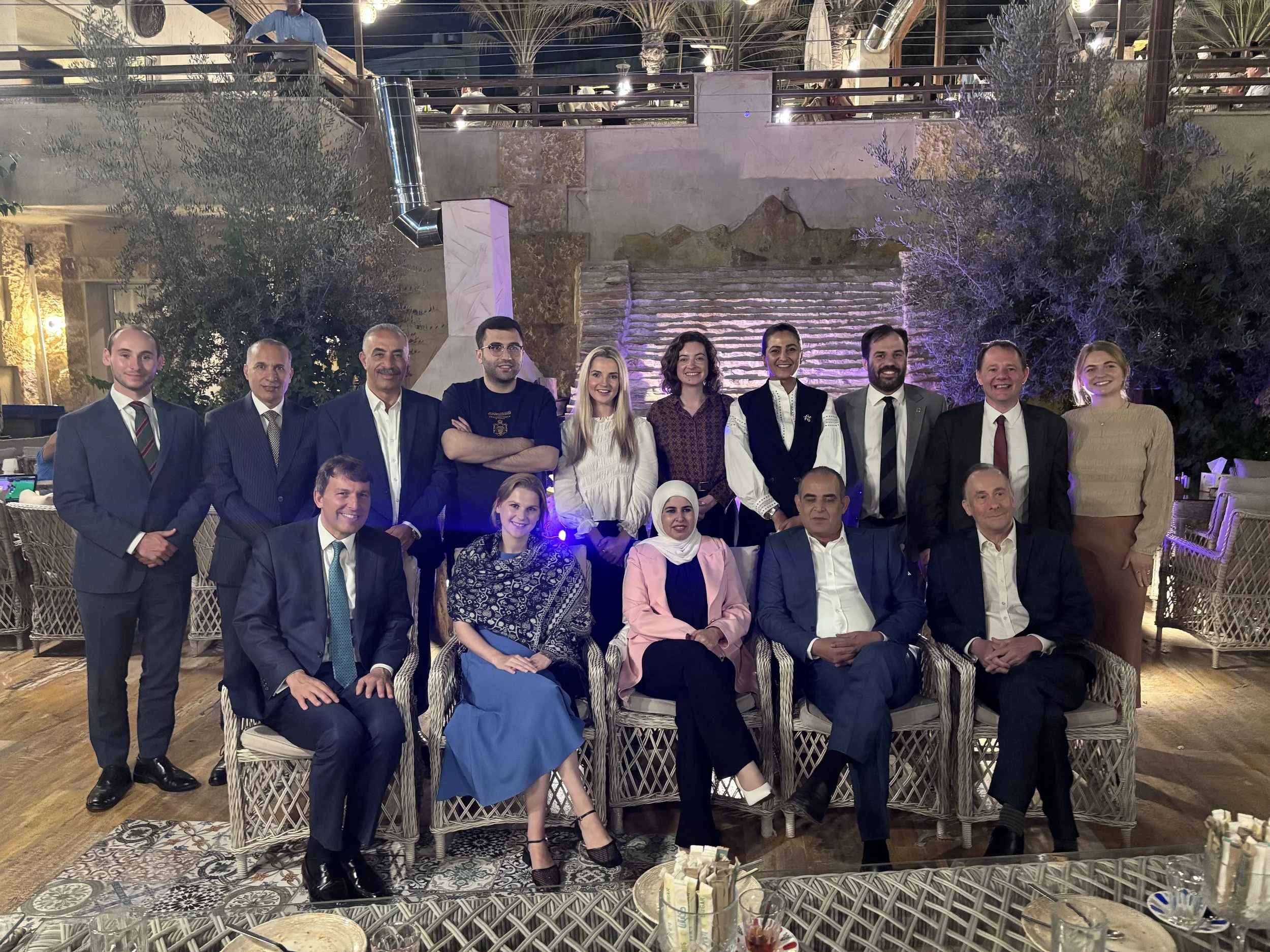
Jordan - July 2025
20th - 25th July
The Coalition for Global Prosperity was honoured to facilitate a cross-party delegation of British Parliamentarians including Rt Hon John Glen MP, Lord Martin Callanan, Sarah Coombes MP, Richard Baker MP, Rosie Wrighting MP and Sean Woodcock MP. As an anchor of stability in a turbulent region, Jordan remains one of the UK’s most trusted and significant partners. The delegation met with senior politicians to underscore the relationship’s strategic importance, and visited UK-funded programmes supporting the large numbers of refugees hosted by Jordan.
To begin their visit, the delegation met members of the Senate and the House of Representatives including Chair of the Foreign Affairs Committee HE Dina Albashir, the Leader of the Senate and former Prime Minister, HE Faisal Al Fayez, and Speaker of the House of Representatives, HE Ahmad Safadi. The delegation sought to understand the multiple pressures on Jordan including one of the largest refugee populations per capita in the world, unemployment rates of 25%, and a burgeoning water scarcity problem.
The delegation also visited the Za’atari refugee camp in the north of Jordan - the largest refugee camp for Syrians in the world where 65,000 individuals are hosted, over half of whom are children. This is a reduced number after over 10,000 refugees returned to Syria in the aftermath of the fall of Assad’s regime. However, this flow of returnees has recently ceased due to renewed violence in Southern Syria; security is the primary factor influencing refugees' decisions to return home.
At the camp, the MPs engaged with children and saw firsthand how maths, literacy, and wider life skills are equipping children and teenagers with the tools for the future. In one maths class for 10-year-old boys, MPs saw how they use mini whiteboards and interactive games to learn. In another class, teenage boys spoke of their dreams to return to Syria - despite having grown up in the camp - and become computer engineers, pilots, and doctors.
At the same camp, the delegation visited one of the 3 bore holes to provide water and sanitation facilities for the population. Climbing to the top of one of the larger water tanks, the MPs could see how expansive the camp had become. They were briefed on the water and waste management of the camp, all of which is self-contained. The MPs also learned how the solar panels next to the camp allowed for families to have 6-9 hours of electricity per day.
The delegation also visited a supermarket in the camp where the World Food Programme described the impacts of funding cuts to their cash assistance programme - a vital lifeline for the vast majority of those living in the camp. Reductions in funding had already led them to cut the monthly allowance of 23 dinar (£24) a month to 15 dinar (£16), but the funding shortfall between September and December this year means this may be cut to nothing if a solution is not found rapidly. The strain of funding cuts is evident elsewhere: many NGOs had recently shut down, including International Medical Corps (IMC) health clinics. IMC had also been providing the camp with two mental health services which closed down 2 months ago, meaning there is no longer mental health support available at the camp.
The delegation also met with Minister Zeina Toukan, who detailed Jordan's plans to address these issues and outlined an ambitious national vision, including major energy and water infrastructure projects and education reforms. Later, Ambassador Phillip Hall kindly hosted the delegation at his residence, where the UK’s embassy team presented an overview of Jordan's geopolitical landscape including how they are currently navigating strategic relationships in an unstable region.
In Amman, the delegation were briefed by UNHCR on their services for refugees living within the local communities. Over three-quarters of refugees do not live in camps but live in urban areas alongside host communities, including in Amman. The visit included the UNHCR’s refugee registration centre, where the delegation learned about the cash assistance programme and participated in a group discussion with refugees from Syria, Sudan, Iraq, and Yemen.
The delegation travelled to Jordan’s northern border with Syria to meet with the 10th Royal Border Guard Battalion of the Jordanian Armed Forces, based in Al-Ramtha. Senior officers briefed the delegation on how they keep Jordan’s borders secure and prevent human, arms and drugs trafficking, which had been particularly facilitated under Assad’s regime.
Sean Woodcock MP describes Jordan’s role in hosting over 500,00 Syrian refugees across the country, during a visit to the Za’atari camp.
Back in Amman, the delegation met with journalists at the BBC World Service to discuss their impartial and transparent reporting, high regional trust, and adaptation to a "digital first" strategy. While adapting to diminishing budgets, their new strategy has driven particularly online audience growth significantly, and the BBC continues to strongly compete with other biased new sources, funded generously by China and Russia. Despite closing their main radio station in 2023, they maintain three 30-minute daily ‘life-line pop-up’ radio bulletins which provide vital and life-saving information for listeners in Sudan, Gaza, and Syria after the fall of Assad.
The delegation visited UNRWA's field office in Jordan, where they were taken to a school where a summer camp was running during the holidays. UNRWA’s mandate includes all 2.39 million registered Palestinian refugees living in Jordan, the majority of whom arrived in the 1960s and 1980s.
The children at the summer camp welcomed the delegation with songs, drawings, and examples of their crafts. This was followed by a group discussion in which Palestinian refugee families told the MPs of their situations, their challenges, and the hope they had for their children.
The visit’s final meeting was with the Secretary-General of Foreign Affairs, the Chief of Staff and Minister Plenipotentiary, and their next Ambassador to Syria, currently in charge of delivery of aid to Gaza. The delegation had an open discussion about the rapidly deteriorating humanitarian catastrophe in Gaza, and long-term solutions to conflict in the region.
To conclude the week, the Foreign Affairs Committee kindly hosted a private dinner with the delegation to discuss the geopolitical challenges facing Jordan and the shared interests the UK and Jordan possess. Ultimately the conversation reaffirmed the notion underlying the entire visit: through their refugee support, careful diplomacy and strong military links, Jordan is a critical partner to the UK to maintain regional stability and advance peace globally.



















